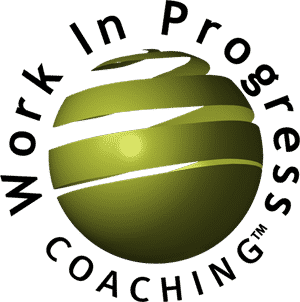I admit it. No matter what I’m doing when I’m not coaching (watching TV, playing tennis, practicing my guitar), I’m asking “What can I learn right now about being effective and producing desired results?”
On a recent rainy day, Sweet Genius, a competitive cooking show, offered some insights on being effective when the heat’s turned up. (Think I can write off my cable bill as a business expense?)
 In case you haven’t seen it, here’s how the show goes. The judge, renowned for his exquisite desserts, presents three chef competitors with dessert challenges. Each timed round begins with 2 things: a mandatory ingredient and something to stir their imagination and be represented in the dessert. In the rainy day episode, these were orange soda and a bubble machine.
In case you haven’t seen it, here’s how the show goes. The judge, renowned for his exquisite desserts, presents three chef competitors with dessert challenges. Each timed round begins with 2 things: a mandatory ingredient and something to stir their imagination and be represented in the dessert. In the rainy day episode, these were orange soda and a bubble machine.
The competition begins with chefs gathering supplies from the pantry and running back to their workstations. As they dice, season and blend, their voice-over tells us what they plan to make and we hear their self-talk and thoughts about doubts and desires.
Half-way through the allotted time, the judge introduces a second mandatory ingredient. The contestants roll their eyes and, on the fly, figure out how to integrate the new element. (Same episode, this was pretzel rods.) We hear their internal conversations: “I’ve never cooked with this. I’m allergic to it. How can I beat the others? What happens if I lose?”
At the end, two finalists bring their desserts to the judge who gives feedback as he nibbles the sweet concoctions. “You are no sweet genius” greets the loser. A twinkle of the judge’s eye and “Congratulations” goes to the winner, plus a check for $10,000.
Imagine with me how the Sweet Genius format might show up at work…
Scenario: To take advantage of an unexpected funding opportunity, the boss (judge) askes the team of sales managers (contestants) to create a sales projection for next 12 months within 24 hours (mandatory ingredient).
To inspire the contestants’ imagination, the boss states the winner will be chosen by a VC (the real judge: person with authority to say something is successful or not) and would be the next VP of Sales (the imagination stimulator). The clock starts. The employees/contestants run to their cubicles and begin to slice and dice numbers.
Half-way through the allotted time, the boss tells contestants/employees that the VC called to say the projections must include 2 new international markets. (Talk about a “what the?” curve ball!) Some roll their eyes and mutter bleep-able phrases. Those we hear are: “This isn’t fair! I can’t work with this kind of pressure. Why didn’t I pay closer attention in that Excel class?”
Time’s up. Presentations made. Here’s what the VC (judge) says before declaring the winner:
“If this was just about the spreadsheet, Mary would have won. However, there’s more to this challenge than manipulating data. The winner’s data wasn’t as detailed as Mary’s, and it showed a sufficient grasp of the issues and opportunities. The winner’s communication skills and ability to take, not deflect, the feedback were outstanding. What set them apart was how they demonstrated skills required of a VP by
- delivering on the conditions of satisfaction and not adding unrequested bells and whistles
- communicating upfront what wasn’t done, without offering excuses
- accepting positive and negative feedback without rebuttal
- thinking and acting with the interests of the company as a whole, not just their job
Congratulations, Matt, you are the new VP of Sales.”
|
Working Well Under Pressure |
|
Whether in the kitchen or the boardroom, being able to produce under pressure is a capacity worth building. It takes self-discipline, self-trust, the ability to communicate and connect with the audience’s concerns, and a commitment to a produce results, not reasons. These are all learnable skills. Which one do you need to improve so you can produce results under pressure?
PS: If you have a TV show you’d like me to critique in this way. Email me: ca*****@*********ng.com.
Subscribe
Get Camille's latest posts!
